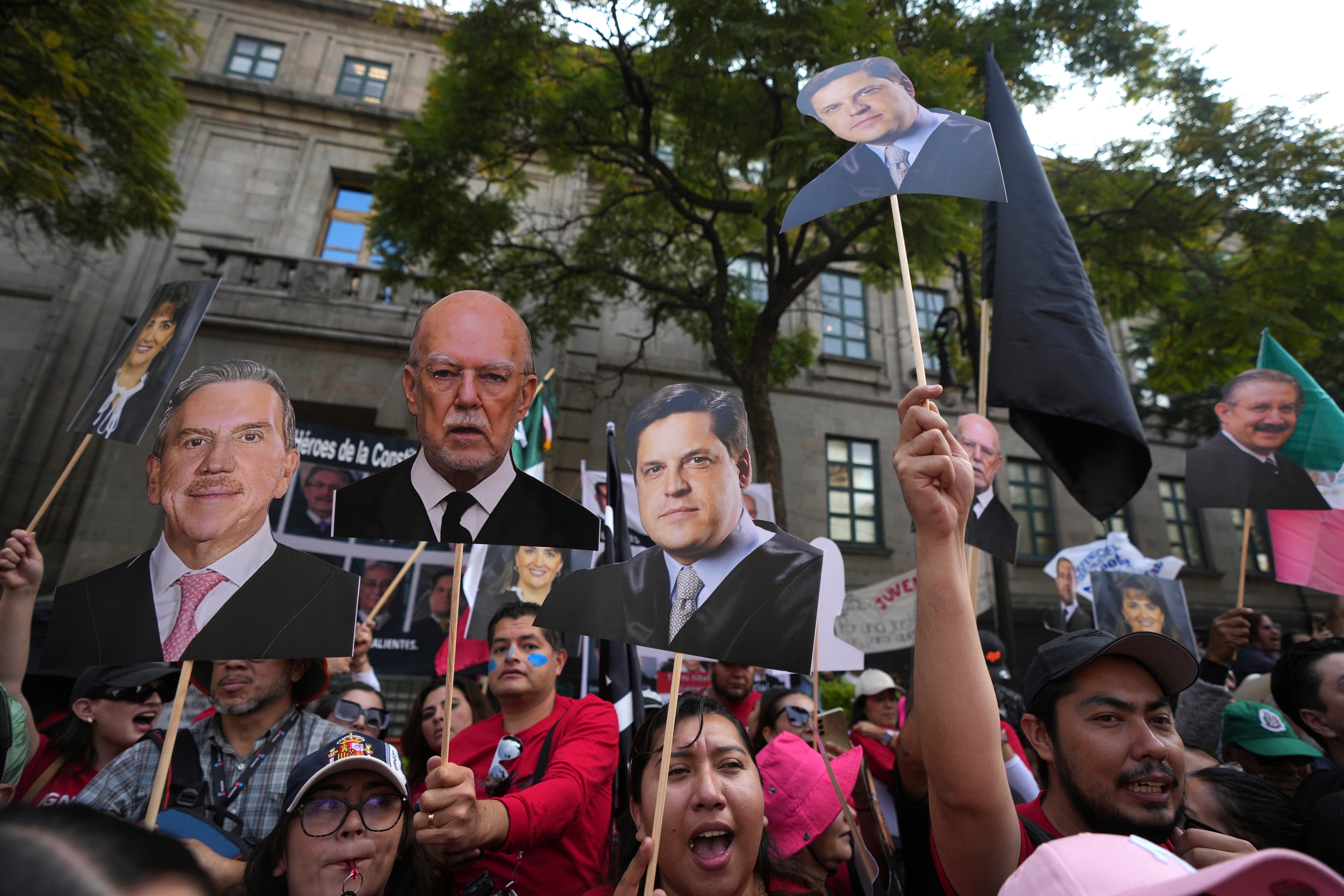Mexico explains 5 easy steps to register online as a candidate for a spot on the Supreme Court
Officials laid out five easy steps for registering online as a candidate for one of nine spots on Mexico's Supreme Court

Your support helps us to tell the story
From reproductive rights to climate change to Big Tech, The Independent is on the ground when the story is developing. Whether it's investigating the financials of Elon Musk's pro-Trump PAC or producing our latest documentary, 'The A Word', which shines a light on the American women fighting for reproductive rights, we know how important it is to parse out the facts from the messaging.
At such a critical moment in US history, we need reporters on the ground. Your donation allows us to keep sending journalists to speak to both sides of the story.
The Independent is trusted by Americans across the entire political spectrum. And unlike many other quality news outlets, we choose not to lock Americans out of our reporting and analysis with paywalls. We believe quality journalism should be available to everyone, paid for by those who can afford it.
Your support makes all the difference.Officials laid out five easy steps Monday for registering online as a candidate for one of nine spots on Mexico’s Supreme Court, or any one of hundreds of federal judgeships.
There was even a short video that made the process look easy. If you're a Mexican citizen, all you need is an ID, a law degree, a grade point average of 3.2, and five letters of recommendation from neighbors or friends.
Write a three-page letter saying why you want to sit on the Supreme Court and you’re good to go. It will all come down to a raffle, anyway, to winnow down what is expected to be a field of thousands of candidates.
Don't speak much Spanish? Don't worry. Candidates who speak one of Mexico's approximately five dozen Indigenous languages can apply too, through a special process.
President Claudia Sheinbaum has pushed through a controversial reform to make thousands of judges stand for election. The judiciary was previously named through a complicated civil service type of system, in which years of service as a court secretary or assistant judge were needed to move up.
Higher positions like the Supreme Court were voted on by legislators from a list of candidates submitted by the executive branch.
Starting in June of 2025, that's all gone: People will have to go to the polls to choose among thousands of lawyers whose names they've probably never heard before.
The winners will preside over extremely complicated cases, like racketeering or anti-monopoly cases, intellectual property and Constitutional law.
If your neighbors think you'd do a good job, that's good enough, according to Arturo Zaldívar, a former supreme court chief justice and currently an adviser to Sheinbaum.
“We need a judiciary that is more human, more sensitive, more diverse, that is much closer to the people,” Zaldívar said. “A judiciary that does not serve the oligarchy, but one that springs from the people of Mexico to serve the people of Mexico.”
Critics say the changes could threaten judicial independenc e, undermine the system of checks and balances, and open the way for Mexico's powerful drug cartels to fund candidates of their liking.
The government says there are safeguards in place.
For example, if you have actually been convicted of a crime, you probably won’t be able to get on the ballot. Some experience is required, but that is not very clear — as a judge? a lawyer? in what kind of cases? — and is largely left up to the evaluation committee.
Get your online application in by Nov. 24. Then an “evaluation committee” named by Congress (which is controlled by Sheinbaum's Morena party) will have a couple of weeks to winnow through the thousands of applications for Supreme Court positions to come up with a list of a dozen or so of the candidates they consider the best qualified, based on experience and character.
Then those names will be tossed into a hat, and two or three lucky candidates will get their names on the ballot June 1 for each of the nine spots on the Supreme Court.
The highly politicized “evaluation committee” is where the fears are greatest. Recently, a congressional evaluation committee reviewed the resumes of several candidates to head the government's Human Rights Commission. The current head didn't make the final candidate list based on her qualifications, but was included anyway, apparently based on political criteria.